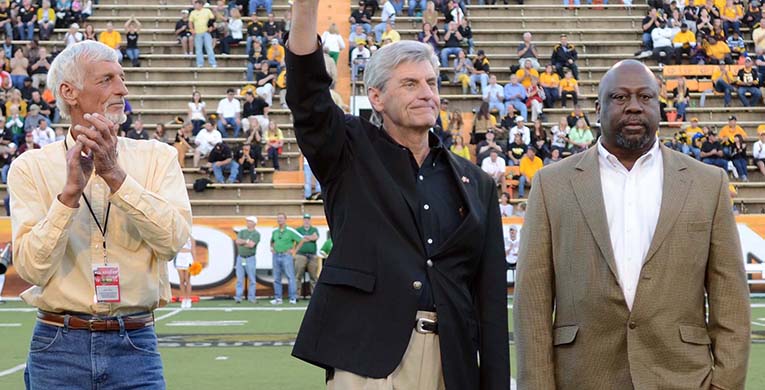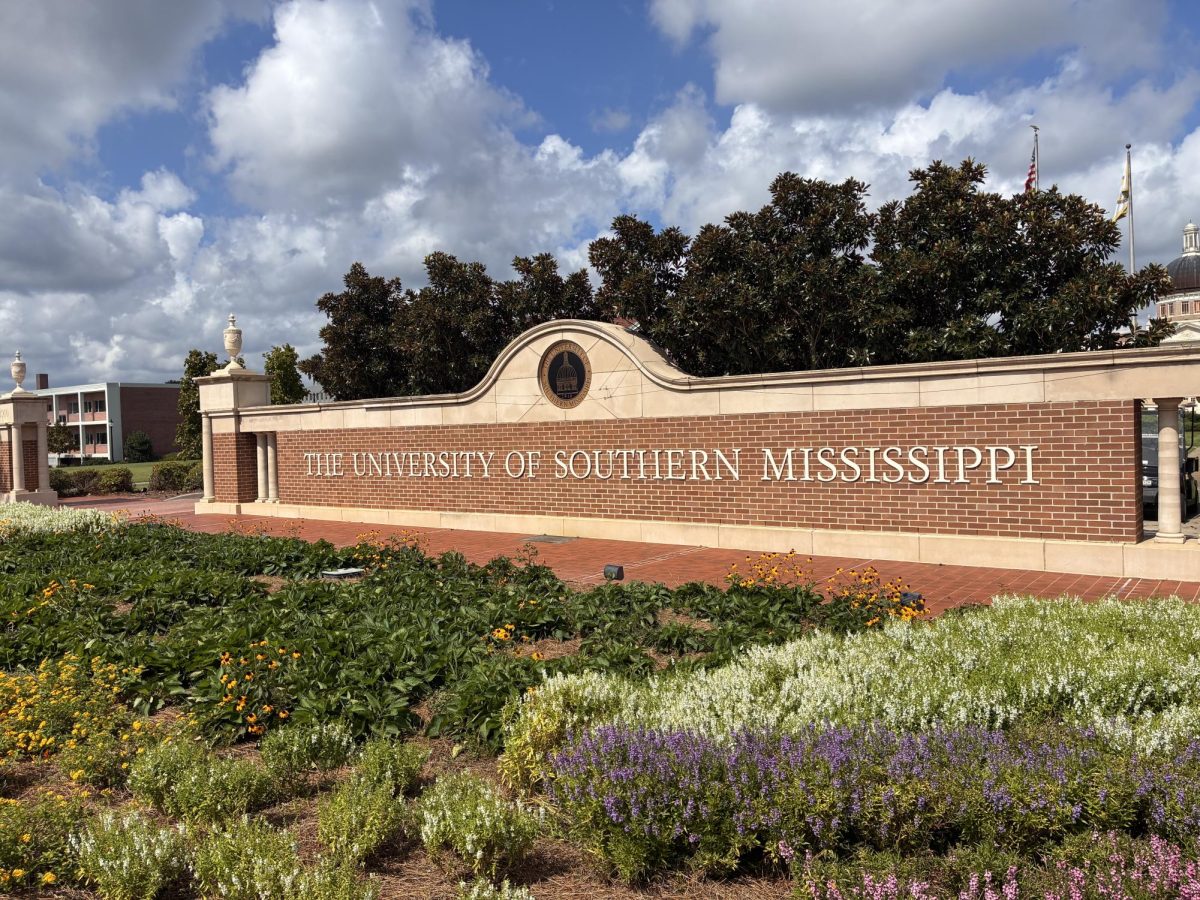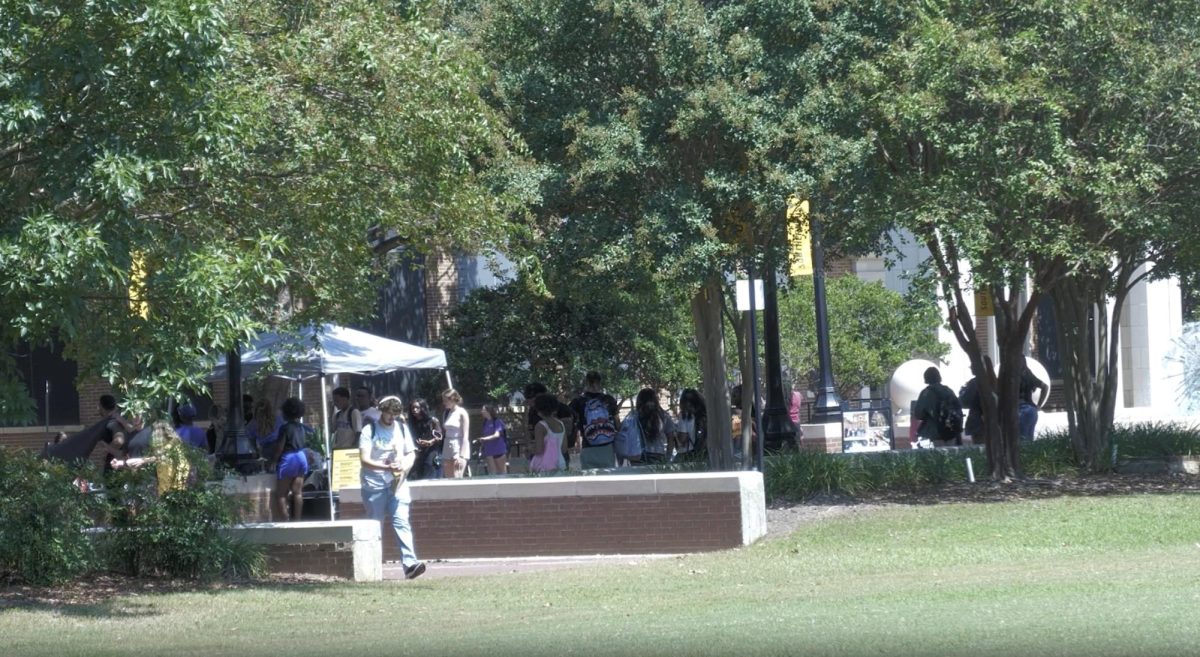
USA TODAY Sports Images
UPDATE: JACKSON—Governor Phil Bryant on Thursday signed Senate Bill 2681, the Mississippi Religious Freedom Restoration Act. This law mirrors the federal Religious Freedom Restoration Act that passed Congress almost unanimously and was signed into law by President Bill Clinton in 1993.
“I am proud to sign the Mississippi Religious Freedom Restoration Act today, which will protect the individual religious freedom of Mississippians of all faiths from government interference,” said Gov. Bryant. “Mississippi has now joined 18 other states to defend religious freedoms on a state level.”
The Human Rights Campaign (HRC) has urged Gov. Phil Bryant to veto Senate Bill 2681 after an unnerving debate in both houses of Mississippi legislature Tuesday ended in the bill’s passage 79-43 in the House and 37-14 in the Senate.
Opponents refer to SB 2681, the Religious Freedom Restoration Act, as the “turn away the gays” bill, or the “license to discriminate,” after finding that its clauses and language could allow business owners to refuse service to gay couples on personal religious grounds.
Much of the previously removed original language was revived in similar forms during a conference committee just 13 minutes before the Monday night deadline. Despite the efforts previously made to allay concerns on the bill’s possibly problematic elements, the third iteration passed the evening of April 1 is referred to as far-reaching.
HRC State Legislative Director Sarah Warbelow stated that the bill, as stands, has the effect of making LGBT people strangers to the law.
“Before Mississippi has had the opportunity to robustly discuss the lived experienced of the LGBT people, this bill would hollow out any non-discrimination protections at the local level or possible future state-wide protections,” Warbelow said.
SB 2681 was brought to House committee in February after large public outcry, following Arizona Gov. Jan Brewer’s veto on a similar bill after it jeopardized Arizona’s stint as next year’s Super Bowl host, amongst other national backlash.
“Just as we have seen in other states, this bill is bad for business, bad for the state’s reputation and most of all, bad for Mississippians,” Warbelow said.
Sen. Philip Gandy, R-Waynesboro, and co-author of the bill, refutes that claim. “The Mississippi Economic Council (MEC) has no problem with this bill, (nor) the business community,” Gandy said.
The MEC previously opposed the bill before recent revisions in its language. Sen. Derrick Simmons, D-Greenville, prompted Sen. John Polk, R-Hattiesburg, to say whether or not he feels the bill would permit discrimination of any type based on religion.
“In my opinion, it does not,” Polk said. Polk compared the bill’s religious protections to the civil rights movement.
Simmons – an African-American – explained his opposition to the bill.
“If you have never been discriminated against, you don’t know how that feels,” Simmons said. “I urge you to vote against this bill because it legalizes discrimination.”
Sen. David Blount, D-Jackson, also refuted Polk’s claims, pointing out that the measures that eliminated discrimination came from federal courts rather than Mississippi legislature.
Gandy said there is no intention to discriminate against anyone. Gandy said the idea came about after he learned that a church in Holly Springs experienced difficulty in receiving a permit to hold services in the town square.
“I’m a Christian in church and in the Senate,” Gandy said.
Bob Press, associate political science professor and faculty adviser of Students for Human Rights at The University of Southern Mississippi, recounts the event in Holly Springs.
“A local church there was denied a permit to use a building on the town square for its congregation because it didn’t have the support of 60 percent of the surrounding property owners. But in that case, the U.S. justice department intervened on behalf of the church,” Press said.
“There is no need for a new law to protect religious freedoms; there are plenty of laws already in place, including the U.S. Constitution, which guarantee religious freedom.”
Christian support of the bill does not stretch across all boards. Rev. Jasmine Beach-Ferrara, executive director of the Campaign for Southern Equality, denounced SB 2681 Tuesday morning.
“As a minister, it’s clear that this extreme bill is about legalizing discrimination, not protecting religious freedom. Furthermore, the broad implications of this bill could result in discrimination aimed toward many communities,” Beach-Ferrara said.
While many Christian organizations oppose the bill, Jimmy Porter of the Mississippi Baptist Convention-funded Christian Action Commission sent out an e-mail threatening action against the 20 Republican representatives who voted against it in March.
“The Christian Action Commission will work diligently to ensure the blame will be laid at the feet of these 20 alleged Republicans,” Porter said. “Approximately, 60,000 Baptist households will read about it and know the truth. Add that to Pentecostal households, members of the Tea Party, followers of the American Family Association, the Liberty Council and the Family Research Council, etc., and you begin to see the widespread interest in this bill.”
Republican House Rep. Toby Barker was the only Republican to vote against the bill. Barker said in February that he would not vote for the bill on the basis that Section 1 of the bill is unnecessary with too much room for interpretation and may simply be a mechanism for discrimination masking itself as a religious practice.
Section 1 of the bill, which appeared originally in January, said, “Government shall not substantially burden a person’s exercise of religion even if the burden results from a rule of general application, except provided in paragraph (b) of this subsection.”
Opposition claims this is the section which introduces the “turn away the gays” clause, allowing business owners to refuse service to gay customers while exercising religion with no governmental intervention.
The bill defines “burden” as including, but not limited to “withholding benefits, assessing criminal, civil or administrative penalties or exclusion from governmental programs or access to governmental facilities.”
Fresh to the bill are lines 16-18 of Section 1: “(b) Laws “neutral” toward religion, as well as laws intended to interfere with the exercise of religion, may burden the exercise of religion. (c) Government should not substantially burden the exercise of religion without compelling justification.”
Eric Bass, senior political science major and member of the LGBT community, follows up the actions made earlier this week with his scorn.
“I’m glad discrimination protects ‘religious freedoms,’ but I ask: where is the protection for the poverty-ridden, ostracized people, sick and underpaid women in our state? Why is this not our focus? Why are we focusing on protection from religious attacks that aren’t even occurring?” Bass said.
Pending Bryant’s signature, the law takes effect July 1, according to the bill’s language.
To view Gov. Phil Bryant’s full story, visit http://www.governorbryant.com/governor-bryant-signs-senate-bill-2681-mississippi-religious-freedom-restoration-act/.






























